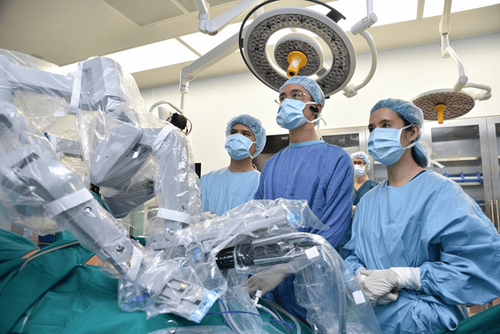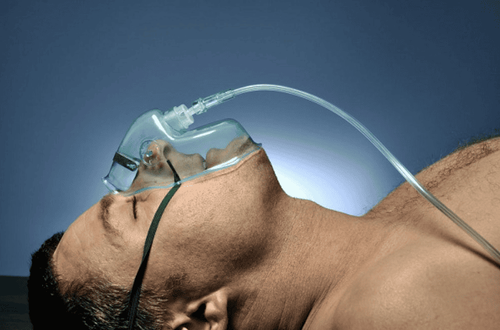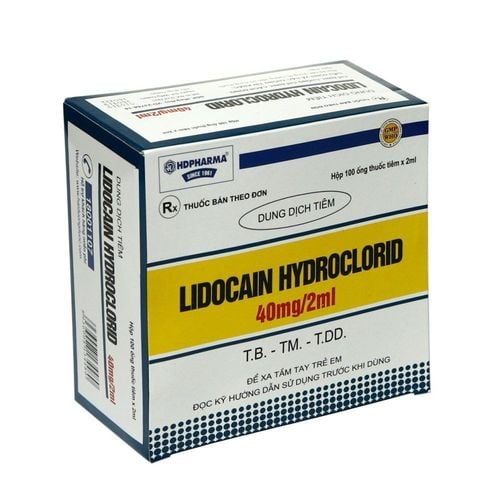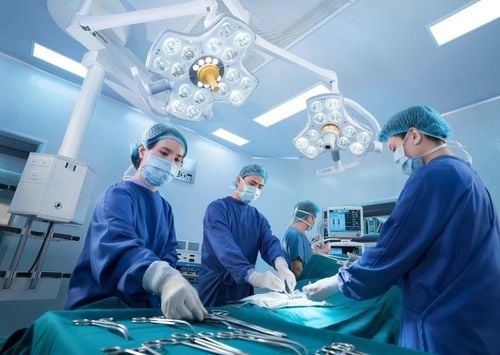This is an automatically translated article.
The article was written by Specialist Doctor II Nguyen Thi Hoai Nam, Head of Pain Relief Unit - Department of Surgical Anesthesia - Vinmec Central Park International General Hospital.Anesthesia is a state of loss of consciousness under the influence of drugs performed when performing procedures or surgery for patients. The purpose of anesthesia is to ensure the safety of the patient and to make the procedure and surgery convenient and successful.
1. Does anesthesia in surgery cause memory loss?
Always the first concern of the patient and family. At the same time, this is also the most frequently asked question that any anesthesiologist during the pre-anesthesia examination also spends a long time consulting and answering for the patient.What did scientists say about this issue?
The first cases of Postoperative Cognitive Dysfunction (POCD) were mentioned 100 years ago and many studies have been done over the past 20 years. However, the mechanism has not been clearly demonstrated and a number of hypotheses have been put forward to explain this situation is still controversial. The expression of POCD is also diverse and general. Patients often show signs of forgetting miscellaneous things, working or being confused, difficulty concentrating, inability to do many things at the same time... To assess the status and level of POCD, there are now tests. Psychiatric evaluation one week before surgery and 3 months after surgery.

Mất trí nhớ sau mổ khiến người bệnh khó tập trung khi làm việc
A study by Alejandro A. Rabinstein in 2014 on neurological disorders and anesthesia showed that POCD often occurs in the elderly and has the highest frequency after cardiovascular surgery: 30-80% in the first few weeks after surgery, 10-60% after 3-6 months. In addition, risk factors include alcoholism, low education, history of stroke. Surprisingly, there is no evidence that the choice of anesthetic modality or anesthesia as well as the depth of anesthesia changes the risk of POCD. POCD is thought to be involved in neuroinflammatory response disorders. Maintaining physiological homeostasis during and after surgery may reduce the risk of this complication. John Beca, David Sidebotham in a 2007 study on neurological disorders found that POCD was common in cardiovascular surgery, 14-37% after coronary bypass surgery, 53% at discharge, 36% after surgery 6 weeks, 24 % after 6 months and 42% after 5 years. Risk factors include old age, extra-coronary atherosclerosis, low education, diabetes, previous neurological deficit... Small multifocal cerebral infarction in asymptomatic elderly increases significantly including the risk of POCD even if they did not undergo surgery.

Nghiên cứu năm 2007 cho thấy POCD thường xảy ra sau phẫu thuật tim mạch
Recently in the journal Frontier Psychiatry January 17, 2019, Seyed A. Safavynia and Peter A. Goldstein also presented evidence from human studies that could not prove an association between POCD and anesthesia. In a review of studies comparing general anesthesia with spinal anaesthesia, the incidence of POCD did not differ, suggesting surgery without anesthesia as the cause of POCD. Kirk Hogan, School of Public Health at the University of Wisconsin (Madison) also concluded in his study: “Changes in thinking ability after surgery are usually small, almost asymptomatic and do not affect the awareness". Stress in life can also cause memory loss. The surgery itself is stressful for the patient, causing the cells, especially the nerve tissue cells, to become inflamed, leading to memory loss after surgery similar to the stress in life. Anesthesia does not cause memory loss as is commonly feared. On the other hand, if properly planned, anesthesia will help prevent stress caused by surgery, minimize complications during surgery, and ensure patient safety.

Stress lâu ngày cũng dẫn đến mất trí nhớ
2. Before surgery, patients need to prepare what?
To ensure safety in surgical anesthesia, all patients need to have preoperative tests to assess liver, kidney, respiratory, cardiovascular, endocrine, coagulation, and infection functions. . In addition, the patient must be examined before surgery to assess the overall condition and accompanying diseases. If necessary, the relevant departments will be consulted to have an appropriate plan of anesthesia resuscitation and postoperative care. Patients need to fast for 6 hours before surgery as prescribed. It is necessary to prepare the patient psychologically before surgery. The anesthesiologist during the pre-anesthesia examination will explain the possible risks, reassure the patient so that they can rest assured and can overcome the stress of surgery. There should be close cooperation between surgeons, anesthesiologists and related specialties in order to best prepare and ensure maximum safety for the patient. Vinmec International General Hospital is one of the hospitals that not only ensures professional quality with a team of leading doctors, modern equipment and technology, but also stands out for its examination and consulting services. and comprehensive, professional medical treatment; civilized, polite, safe and sterile medical examination and treatment space.
Customers can directly go to Vinmec Health system nationwide to visit or contact the hotline here for support.














